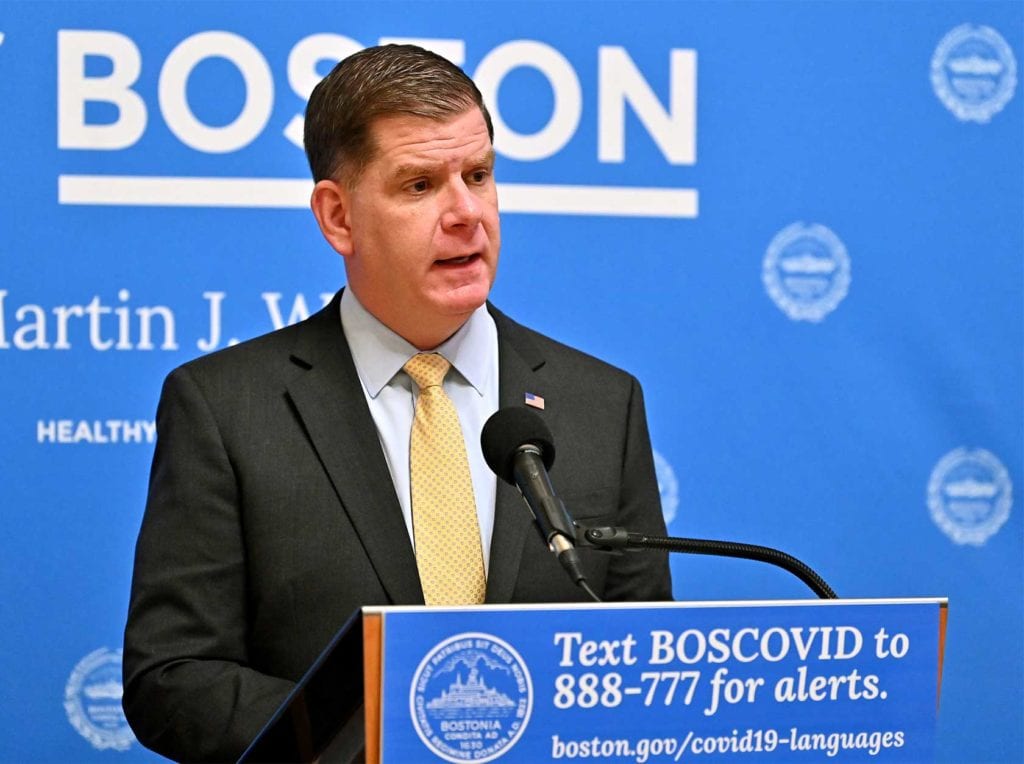
Boston is moving back to a modified version of phase 2, step 2 of the Massachusetts reopening plan. As of Dec. 16, several industries will close and private gatherings will be limited.
Step 2 of phase 2 does not shut down indoor dining, but it does limit indoor dining by removing bar seating. Most indoor recreational spaces, such as athletic facilities, arcades and event spaces will close. Gyms will be limited to appointments only, while cultural centers like museums and historical sites will fully close.
On Dec. 8, the entire state was rolled back to phase 3, step 1, with outdoor events limited to 50 people. Starting this week, outdoor events are limited to 25, and private indoor gatherings like parties are limited to just 10 people.
Mayor Martin Walsh has insisted that residents get tested before and after gathering, especially during the holiday season. This week, the city is offering only one free walk-up mobile testing site in the city, open for four hours at a time at Mildred Hailey Apartments in Jamaica Plain, for symptomatic and asymptomatic individuals.
Many health centers and urgent care facilities charge a fee if insurance does not cover it. Though the virus is often spread by people who do not have any symptoms, at some health centers symptoms are a requirement. At Bowdoin Street Health Center, free tests will not be given to those who traveled out of state. At Codman Square Health Center, tests are available if patients are symptomatic or asymptomatic, but are only free if a health screening calls for it.
Free testing sites like DotHouse Health and Greater Roslindale Medical Center are by appointment only to reduce crowding, as lines increased around the holidays. At Tufts Medical Center, asymptomatic individuals will be charged $135 out of pocket. Gov. Charlie Baker announced statewide expansion of testing, but the expansion was focused on areas with new surges rather than Suffolk county.
As of Dec. 14, the seven-day average positive test rate in Boston was 5.71%. There were 3,572 newly confirmed cases. The seven-day average of total active cases in Boston was 6,135. To keep students safe while cases continue to rise, Boston Public Schools has implemented freestanding air purifiers and continuing tests on air quality in schools. On Monday they reopened 28 schools to high needs students with disabilities or language needs.
The first vaccine arrived at four Massachusetts hospitals Monday: Brockton Hospital, Falmouth Hospital, Cape Cod Hospital and Boston Medical Center. The anticipated timeline, according to the Baker Administration, is now in phase 1 through February 2021. Front-line workers in health care and emergency services will get the vaccine first, then in phase 2, individuals who are very high risk (with two or more comorbidities) and workers in essential professions (food, sanitation, public works, K-12 education, grocery, transit and utility) will receive it next. Phase 2 also includes adults aged 65 and over and other high-risk individuals.
In phase 3, estimated to begin in April 2021, the vaccine will be available to the general public.
Waiting for federal action
As local governments wait for federal assistance for those who are losing their jobs and housing during the pandemic, the Walsh administration is pointing residents to municipal rental relief funds and other grants and assistance.
“It shouldn’t take mayors and governors begging for help. Congress and the sitting administration should do their jobs,” Mayor Walsh said via Twitter on Monday. “I know there are differences in what the parties want to prioritize, but something has to get done, and we will continue to fight for it,” he continued.
On Monday, a dozen U.S. senators introduced a joint relief bill with $160 billion in state and local funding that is currently being debated on Capitol Hill.
For more information:






